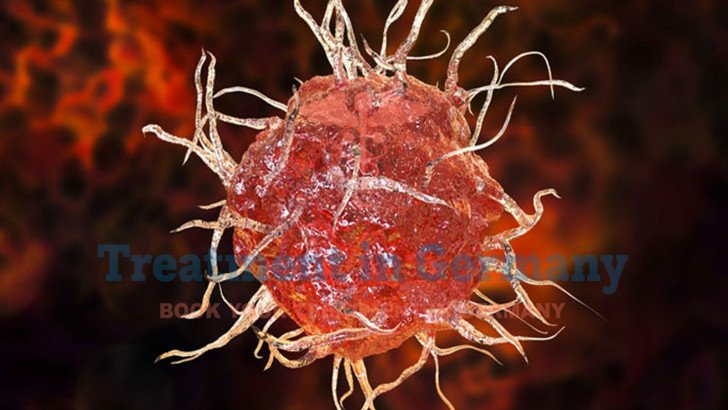
Dendritic cell therapy, a cornerstone of modern immunotherapy, is revolutionizing cancer treatment by harnessing the immune system to target tumors.
Dendritic cell therapy, a cornerstone of modern immunotherapy, is revolutionizing cancer treatment by harnessing the immune system to target tumors. Germany, a global leader in advanced cancer research, is at the forefront of developing universal dendritic cell cancer solutions, offering hope to cancer patients worldwide.
Dendritic cells, the immune system’s master orchestrators, detect tumor antigens and present them to T cells, initiating precise immune responses. Their ability to bridge innate and adaptive immunity makes them ideal for immunotherapy. Universal dendritic cell cancer solutions aim to create standardized, scalable therapies applicable across cancer types, reducing reliance on patient-specific vaccines. Germany’s hospitals and cancer clinics lead in translating dendritic cell research into effective treatments, advancing cancer care for cancer patients.
Universal dendritic cell cancer solutions involve developing dendritic cell therapies that target shared tumor antigens across multiple cancer types, such as melanoma, breast, or lung cancer. Unlike personalized vaccines, these solutions use pre-engineered dendritic cells or off-the-shelf vaccines to stimulate broad anti-cancer responses. In Germany, dendritic cell therapy is optimized through advanced biotechnologies, ensuring scalability and efficacy. German oncologists integrate these solutions with conventional therapies, enhancing anti-cancer outcomes.
Germany’s Pioneering Research in Dendritic Cell Therapy
Germany’s advanced cancer research drives the development of universal dendritic cell cancer solutions through a multi-faceted approach:
German specialists leverage cutting-edge laboratories to push the boundaries of dendritic cell therapy.
Germany’s Leadership in Universal Dendritic Cell Solutions
Germany’s cancer research ecosystem positions it as a global hub for dendritic cell therapy. Leading university hospitals and cancer clinics pioneer protocols that address advanced cancers, offering innovative options to cancer patients.
Impact on Cancer Treatment
Universal dendritic cell cancer solutions are transformative for cancers with shared antigens, such as pancreatic or colorectal cancer. By targeting common tumor markers, these therapies reduce production time and broaden applicability. German oncologists use dendritic cell therapy to treat metastatic disease or prevent recurrence, improving anti-cancer outcomes for cancer patients with complex cases.
Integration with Other Therapies
Germany’s pioneering research integrates dendritic cell therapy with:
This collaborative approach, led by German surgeons and oncologists, ensures holistic cancer treatment.
Advancements through Clinical Trials
Germany’s clinical trials for cancer are pivotal in advancing universal dendritic cell cancer solutions. These trials explore mRNA-based vaccines, nanoparticle delivery, and combinations with CAR T-cell therapy, demonstrating potential across cancers like leukemia or glioblastoma. German cancer clinics lead global efforts, providing cancer patients with access to experimental immunotherapy unavailable elsewhere.
Why Germany Leads in Dendritic Cell Cancer Research
Germany offers distinct advantages for cancer patients seeking dendritic cell therapy:
Risk Factors and Cancer Prevention Strategies
Preventing cancer complements dendritic cell therapy efforts. Key risk factors include:
German specialists promote healthy lifestyles, regular screenings (e.g., MRI or CT scans), and genetic testing to mitigate cancer risk.
Diagnostic Excellence in Germany for Cancer
Accurate diagnosis underpins effective cancer treatment. German hospitals employ:
German radiologists and pathologists ensure precise staging, optimizing immunotherapy strategies.
Post-Treatment Care and Quality of Life
Following dendritic cell therapy, German cancer clinics provide robust follow-up:
Germany’s holistic approach ensures cancer patients achieve sustained recovery.
Challenges and Future Innovations
Developing universal dendritic cell cancer solutions faces challenges, including antigen variability and immune suppression by tumors. German pioneering research addresses these through:
Future advancements may include AI-driven antigen selection and universal vaccines for rare cancers, expanding anti-cancer outcomes.
Conclusion
Germany’s pioneering research in universal dendritic cell cancer solutions is reshaping cancer treatment, offering scalable, effective immunotherapy for cancer patients worldwide. By leveraging dendritic cells to orchestrate precise immune responses, Germany’s advanced cancer research delivers hope for advanced and resistant cancers. With cutting-edge clinical trials, world-class hospitals, and a commitment to quality of life, Germany stands as a global leader in dendritic cell therapy. The expertise of German doctors and innovative technologies ensure that universal dendritic cell solutions continue to redefine the fight against cancer, providing transformative care for cancer patients.
Frequently Asked Questions
What are universal dendritic cell cancer solutions in Germany?
They are scalable dendritic cell therapies targeting shared tumor antigens, offered at top German cancer clinics.
How does dendritic cell therapy improve cancer outcomes?
Dendritic cells trigger targeted anti-cancer outcomes, reducing tumor growth and recurrence.
Which facilities offer dendritic cell therapy in Germany?
Specialized university hospitals and cancer clinics provide advanced cancer immunotherapy.
Are clinical trials for dendritic cell therapy available in Germany?
Yes, German cancer clinics offer trials advancing universal dendritic cell solutions.
Is follow-up care provided after dendritic cell therapy in Germany?
Yes, including MRI, rehabilitation, and emotional support.
How does Germany compare to the UK/US for cancer research?
Germany leads in pioneering research, rapid access, and holistic cancer treatment.
Can dendritic cell therapy prevent cancer recurrence?
It targets residual cancer cells, lowering recurrence risk.
Does Germany support international cancer patients?
Hospitals in Germany offer language assistance, travel coordination, and psychological support.
What are the latest advancements in dendritic cell therapy in Germany?
Germany pioneers mRNA-based dendritic cell vaccines and nanotechnology for cancer treatment.
How does dendritic cell therapy differ from traditional treatments?
Unlike chemotherapy, dendritic cell therapy offers targeted immunotherapy with fewer side effects, enhancing quality of life.
For more information or a free consultation, visit our contact us page.
Kindly complete the form below, and our dedicated team will reach out to you promptly. We look forward to connecting with you soon!
Trierer Straße, 56072 Koblenz, Germany
.webp)
.webp)
 (1).webp)
 (1).webp)

.webp)
.webp)
 (1).webp)
 (1).webp)
